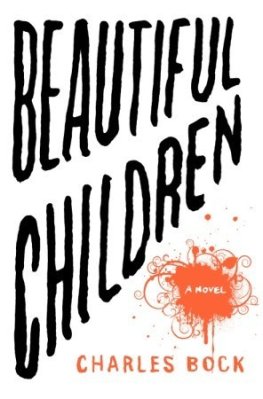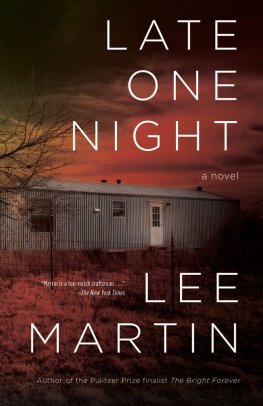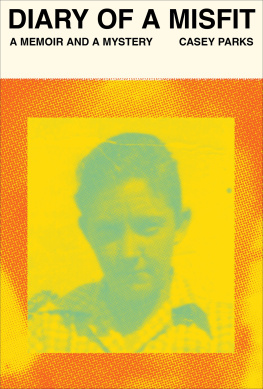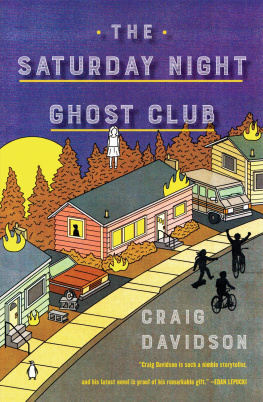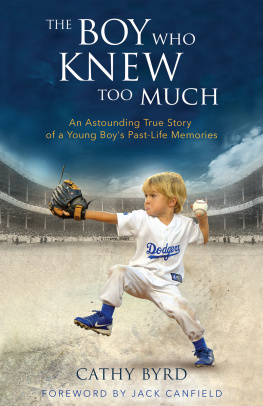Charles Bock
Beautiful Children
For my parents,
Caryl & Howard Bock

1.1
The lens zooms in, then draws back. The images are shaky: a celebration, that much is clear; children in bright orange jerseys and matching baseball caps, some worn backward, or with bills to the side. They chatter and jibe, passing pitchers of soda, reaching for slices with favorite toppings. Chins shine with grease. Smiles glow as if smeared with lipstick. One boy sits a bit away from the rest, toward the end of the table. He is pretty much the same size as everyone else pudgier than some, smaller than others. He's not wearing a cap, though, and the poor resolution of the camcorder makes it look as if the top of his skull might be consumed in flame. But no. Another second shows nothing more dangerous than a mass of bright red hair. The child leans forward now, his jersey bunching around his shoulders. Attempting to convince the nearest teammate to unscrew the top of a salt shaker, his freckled face is animated, lively. Dude, we can hear him say. Come on. Come on, dude. A punch to the shoulder answers him. He squeals, though not unhappily. Dick.
The camcorder's microphone catches the tail end of a reprimand from an unseen adult. It catches the boy's protest, It wasn't me! By this time, though, focus is shifting, swinging toward the middle of the table, where coaches and other adults subdue a slap fight. After a few seconds, a semblance of decorum is reached; the presentation of the next trophy begins, and the camera pans down the length of the table, showing children in varying states of interest. And here judicious use of the fast-forward cues a final appearance by the redheaded boy, for just a few seconds, a short sequence he directs a sneering remark toward the action; when his neighbor does not respond, the boy sinks into his chair. The flesh of his cheeks lengthens, goes slack. Small eyes cloud, turn dark.
This sequence, these scant seconds, are why the Ewings tracked down that videotape. Because recent photos were supposed to work best, were supposed to give a potential witness the best chance at identification. So Lincoln and Lorraine would stand at the front door of a nice couple whose names they had memorized on the ride over. Nodding soberly, the Ewings would thank the couple for all their help. They would try to make small talk. The delighted shrieks of children would interrupt, breaking out from upstairs, bodies tramping, at play. Then designer sunglasses would not be able to hide Lorraine's tears. And then Lincoln would take his wife into his arms. Gently he would stroke her hair and gently he would guide her back down the walkway, her face staying buried in his shoulder, her mascara running, just a bit, onto his suit's lapel. No words between them, just his arm delicate around her waist, their long, twisted shadow slipping diagonally through the trim, open yard. And yes, that black cassette, it would be Lincoln's possession: in his opposite hand, as far from Lorraine as possible.
In a short amount of time that section of videotape would be transformed into a series of stills, frames scanned into a computer. A single frame would be enlarged, then Photoshopped, resulting in the image of a slouching, unexpressive child. This image would be circulated in e-mail attachments, faxes, and flyers; it would be posted in arcades and student unions and youth hostels; in post offices and convenience stores and drop-in centers for the homeless and indigent. And at some point fairly early on in this process, Lincoln Ewing would be reminded of the damndest piece of information. A drop of conventional wisdom that, honestly, Lincoln had no clue where he'd picked up. It concerned Native Americans. Supposedly, when photography was invented, they believed each picture from the white man's magic machine removed a piece of the subject's soul.
This was precisely the kind of thing Lincoln didn't need in his head. Yet, just as a tongue cannot resist probing the sensitive area of a cracked tooth, Lincoln would find himself returning to that god-awful piece of information: gnawing on it when a police officer misread his son's birth certificate, causing the boy's middle name to fall by the wayside, becoming as forgotten as the great-grandfather who had inspired it. And when mention of the boy's twelve years of age was replaced by his date of birth this distinction small, but especially painful, however pragmatic; done, it was explained, as a matter of protocol, to acknowledge a grim reality: nobody can say how long a child will be missing.
Lincoln would watch the police spokesman squinting in front of a phalanx of floodlights and tripods, stumbling through a prepared statement that asked for the public's help; he'd watch the vacuous broadcasters with their melodramatic pronouncements. He would gather up the stuffed-animal bouquets, attend the candlelight vigils. Lincoln would offer rewards and set up 1-800 hotlines. Steps taken for a righteous purpose, in the ostensible hope of solving this tragedy; steps that placed more and more distance between the flesh and blood of Newell Ewing and the cautionary tale his name would come to signify, between the child from that pizza party and the embodiment of every parent's worst nightmare.
And when that soulless stare had been reproduced hundreds of times; when thousands of Xeroxes had been made off hundreds of copies, most of them done on machines perpetually low on toner; when another copy of a copied copy had created further blurring, new smudges; after all this, Lincoln Ewing would be left to wonder. What was left of his son? What did he have?
This would be later.
1.2
A hundred and five outside for the ninety-ninth straight day. That dry desert heat, a wall that hit the moment you stepped outside, then pounded relentlessly. To get local fanboys away from their liquid crystal screens, out of their air-conditioned living rooms, and into their air-conditioned cars, management at Amazin Stories had been importing the biggest names in the fantasy game. Every Saturday afternoon, there were free meet and greets, autographs, happily personalized little doodles, and, sure, loads of stock for sale. So long as nobody went crazy and wheelbarrowed in every comic an artist had done, collectors could even bring their own back issues to be signed. It was a pretty sweet deal, and an effective one, so much so that each weekend, men in their early to middle twenties shuffled self-consciously into the store, half-embarrassed but also nervous, wired, as if the warm spots they possessed for their childhood heroes were stains of gum they'd stepped into and now were unable to free themselves from, the hard and powerful colors pulling, urging them to revisit the ritual of standing inside a store of illustrated books; of reading; of fantasizing and being swept away.
All of twelve years old, Newell was in the bloom of his enchantment. Except for a few times when his parents had made him clip on his tie and go out to brunch with them, he'd spent most of his Saturday afternoons in Amazin Stories, squirming through the larger, taller bodies for a better view of the autograph table, hanging on every spoken word from the makeshift lectern, laughing on cue with everyone else. When the iconic septuagenarian had good-naturedly regaled the overflow audience with golden-age reminiscences for a good hour longer than scheduled, Newell had had a primo view. And when the year's hottest illustrator had repeatedly checked his watch, deflected most questions as irrelevant, and repeatedly referred to his upcoming

